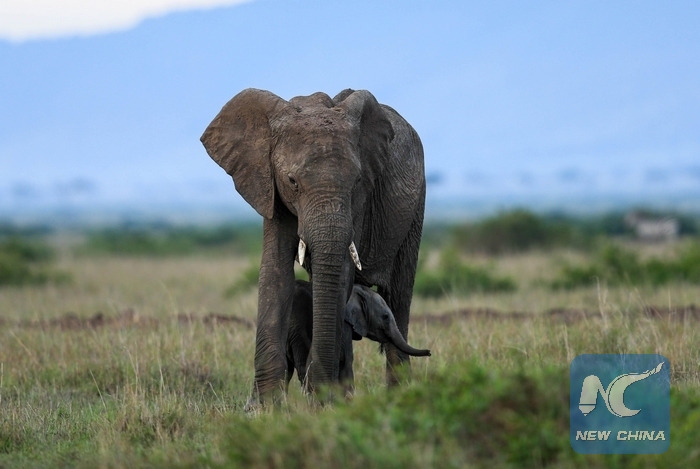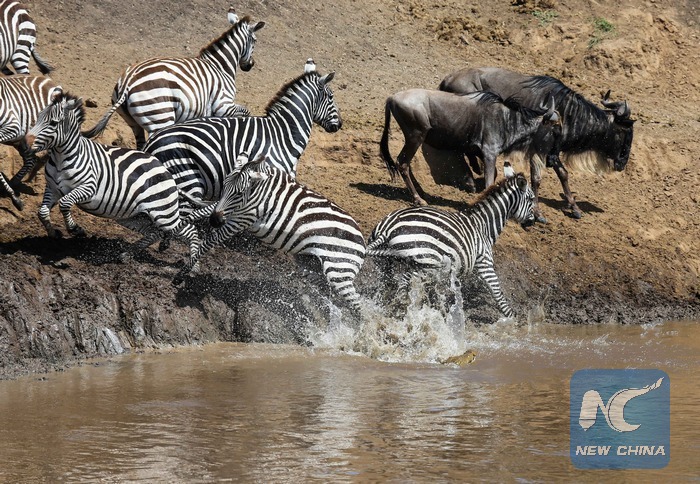
An elephant and its child are seen at the Maasai Mara National Reserve, Kenya, Nov. 24, 2013. To pursue food and water, a large number of wild animals made their second migration trip of this year to the Kenyan Maasai Mara National Reserve due to drought in Serengeti National Park of Tanzania. (Xinhua/Meng Chenguang)
NAIROBI, Feb. 10 (Xinhua) -- Severe drought in Kenya is likely to lead to increased human-wildlife conflict, the country's wildlife conservationists warned.
International Fund for Animal Welfare (IFAW) East Africa Regional Director James Isiche told Xinhua in Nairobi that lack of water and pasture will force wildlife to move out of protected areas in search of water.
"As a result, we are likely to witness increasing cases of human wildlife conflict this year," Isiche said on the sidelines of the conference on building capacity in the management of the wildlife-livestock interface.
Isiche said that the situation for elephants is very dire as they will likely encounter livestock and humans as they all search for water.

A crocodile hides in the underwater to prey zebra at the Maasai Mara National Reserve, Kenya, Nov. 24, 2013. To pursue food and water, a large number of wild animals made their second migration trip of this year to the Kenyan Maasai Mara National Reserve due to drought in Serengeti National Park of Tanzania. (Xinhua/Meng Chenguang)
"Elephants tend to move along in families and the old and young are likely to be impacted because they are weaker," he added.
IFAW noted that it will be a mammoth task to avoid animal deaths resulting from the human-wildlife conflict. Some of the measures that could be used include deploying wildlife rangers to separate wildlife and humans.
Isiche said the drought has been exacerbated due to the destruction of Kenya's key catchment areas.
Wildlife conservationists noted that drought could reverse the gains made to reduce elephants deaths caused by poaching.
The number of elephants killed by poachers has been reducing from a high of approximately 350 elephants a year in 2012 to fewer than 200 currently.

